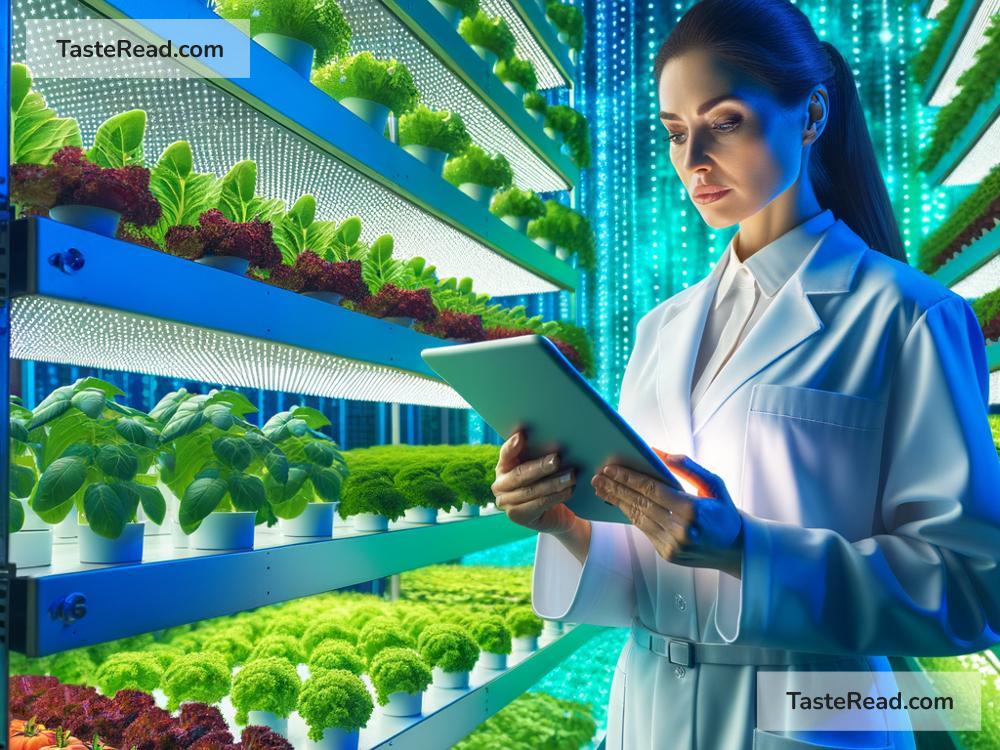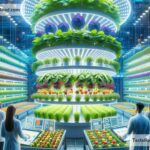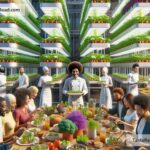The Future of Food and Policy Advocacy: Feeding the World Sustainably
Food is one of life’s most basic needs, but the way we grow, eat, and share food is changing fast. Climate change, population growth, and technology are reshaping how the world feeds itself. As a result, future food systems will need to be more sustainable, nutritious, and fair. At the same time, policy advocacy will play a key role in guiding governments, businesses, and communities toward better food choices. In this article, we’ll explore the future of food and why policy advocacy matters more than ever.
The Challenges Ahead
The world’s population is expected to reach nearly 10 billion by 2050. Feeding everyone will require significant changes to how food is produced and distributed. Yet, challenges like climate change, soil degradation, and water scarcity make growing food more difficult. Extreme weather events—such as droughts, floods, and hurricanes—are already disrupting farming and food supply chains worldwide.
Additionally, our current food system contributes heavily to greenhouse gas emissions, deforestation, and biodiversity loss. Livestock farming, for instance, generates methane, a potent greenhouse gas, while large-scale monoculture farming depletes soil nutrients. If we don’t act, these environmental issues will worsen, threatening global food security.
Another challenge is inequality. Millions of people still lack access to nutritious food, while others face health problems like obesity due to unhealthy eating habits. Fixing this imbalance requires smarter policies that ensure food is affordable, accessible, and diverse for everyone, regardless of where they live or how much they earn.
Innovations in Food Production
The future of food will rely on innovative solutions to address these challenges. Scientists, engineers, and farmers are already working on new technologies and practices to make food production more sustainable.
One exciting development is vertical farming, where crops are grown indoors in stacked layers. These farms use less land, water, and pesticides than traditional farming, making them ideal for urban areas with limited space. Another breakthrough is lab-grown meat, which is made from animal cells instead of raising and slaughtering livestock. This process drastically reduces environmental impact and could become a major source of protein in the future.
Additionally, new crops are being developed to withstand harsh conditions caused by climate change. For example, drought-resistant corn or salt-tolerant rice could help farmers in regions facing water shortages. Precision agriculture, using drones and sensors, also helps farmers monitor soil health, apply water and fertilizer efficiently, and reduce waste.
Beyond technology, there’s growing interest in returning to traditional farming practices, such as regenerative agriculture. This approach focuses on restoring soil health, planting diverse crops, and rotating livestock to improve ecosystems and reduce carbon emissions.
Eating Habits of the Future
Not only will food production change, but the way we eat will evolve too. Today, there’s increasing awareness of how diets impact personal health and the planet. In the future, people may eat less meat and more plant-based foods to reduce environmental harm. Alternative proteins, like pea-based burgers or insect snacks, could become more common.
The concept of “food as medicine” is also gaining attention. Many diets of tomorrow may focus on personalized nutrition, where food is tailored to an individual’s genetic makeup, lifestyle, and health needs. Apps and wearable devices could help people track their nutritional intake and recommend the best foods to eat for their specific goals.
Cultural foods and traditions will continue to play a central role, bringing people together and celebrating diversity. However, global food systems will need to ensure that everyone can access and appreciate nutritious options, regardless of economic or geographic barriers.
Why Policy Advocacy Matters
Innovative technologies and diet changes can’t solve everything. Policies are essential to shaping the future of food. Governments, organizations, and advocacy groups need to work together to create laws and programs that promote sustainability, fairness, and nutrition in food systems.
For example, policies that support farmers to adopt sustainable practices are critical. Incentives like subsidies for regenerative agriculture or funding for research into climate-resilient crops can help farmers make the shift without financial risk. Similarly, new regulations may be needed to address food waste. Around one-third of all food produced globally is wasted, and advocacy groups are working to create policies that reduce waste at every stage—from farms to supermarkets to households.
Policies also ensure that food remains accessible to everyone. Advocacy groups often fight for programs that combat hunger, such as school meal initiatives or food stamps for low-income families. On a global scale, organizations like the United Nations push for efforts that prevent famine in vulnerable countries.
Education and awareness also play a key role. Advocacy efforts often focus on teaching people about healthier and more sustainable food choices. Governments, schools, and media outlets can work together to promote food literacy, helping everyone understand how our choices impact both health and the planet.
Finally, international cooperation is necessary for solving global food challenges. Food doesn’t respect borders; agricultural policies in one country may affect markets and ecosystems elsewhere. Advocacy for fair trade and environmental protections can ensure that food systems around the world remain balanced and ethical.
Conclusion
The future of food is full of challenges and opportunities. New technologies and farming practices offer hope for feeding a growing population in a sustainable way, while changing diets can reduce environmental harm and improve health. Yet, none of these solutions will succeed without smart policies and strong advocacy to guide the way.
As consumers, we all have a role to play. By learning about food issues and supporting policies that prioritize sustainability and fairness, we can help ensure a better future for food. After all, the choices we make today—both on our plates and in our votes—will shape how the world eats tomorrow.


